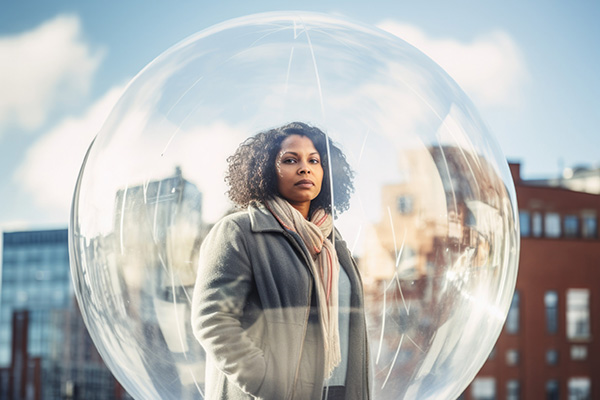food
Love Is Not Just A Battery, It’s Also A Boomerang!
 Love is like a battery. Love is also like a boomerang.
Love is like a battery. Love is also like a boomerang.
When your energy is low, you may feel depleted and think you don’t have any more love to give. The opposite is also true. Complimenting a stranger or showing love to an animal or person re-energizes your battery.
Love is infinite, not finite. The love and joy you give to others comes back to you.
In fact, I often tell my yoga students and psychic clients who are struggling with depression or sadness to compliment at least ten people each day.
It can be something as simple as saying, “I love that shirt!” or “Your writing is so neat!” The smile on that person’s face raises your vibration, healing you as well as them. Most people are struggling with some kind of challenge, and that one compliment can change their day.
Studies have shown that smiling releases hormones that make you happy, while frowning releases hormones that make you sad. Laughing and crying intensifies these hormones. So, smiling at someone or laughing can actually raise your joy level and vibration.
We live in a hate and frustration driven world lately where people are increasingly divided and constantly judging and attacking each other. I belong to several social media groups where people constantly being unkind and intolerant to others. Continue reading
Change Your Habits, Change Your Life!
 As 2025 comes to an end and the New Year is upon is, many of us are considering how we can improve our lives and become a better version of ourselves.
As 2025 comes to an end and the New Year is upon is, many of us are considering how we can improve our lives and become a better version of ourselves.
Today we might be sitting with our shiny new diary or journal, or a beautiful 2026 calendar full of inspiring affirmations, in the hope it will inspire us to lead healthier, happier, more fulfilling and successful life. But the single biggest thing that we can do to change our lives for the better and really smash our goals is to change our habits.
What we habitually do is who we will ultimately become. Our daily physical habits are our metaphysical destiny. In fact, research would suggest that approximately 95% of the things people do daily are purely habitual.
From the spiritual perspective, I always look to archetype of The Archer in the Wildwood Tarot deck as the positive symbology to help me break bad habits and create new, better ones.
The Archer is a genuinely motivating card that symbolizes strength, direction, aim and focus. When it comes to habits, it reminds us to focus on the positive ones and that by doing so, we will achieve our goals by hitting our target. Gaze upon his symbology, and it should help give you the strength to do so.
For example, I am a chocoholic, the results of which is clearly evident around my middle-aged waistline! How do I personally break the habit of a lifetime and develop a healthier relationship with chocolate? Well, the guidelines are the same for any other goal we may have:
Remember To Wear Your Protection Daily
 Many of my clients complain feeling drained by people around them. These energy thieves can be found in their work environment, and among friends or family. In turn, what affects them energetically, also affects their pets.
Many of my clients complain feeling drained by people around them. These energy thieves can be found in their work environment, and among friends or family. In turn, what affects them energetically, also affects their pets.
Only yesterday, I was driving one of our local veterinarians back to her practice in town. I had brought her out to our place in the country to check our latest rescue dog; he is still too nervous to get into the car.
She then started telling me, with no prompting from me, how her customers are draining her. She feels that her animal patients are profoundly affected by their owners’ moods. The vet said she takes a few days off intermittently to recharge her batteries – not from the work she loves, but from the pet owners!
When I saw psychic medium John Edward perform live, he was stressing how important it is to wear our energy or psychic protection. “Wear it like a condom,” he said. I have since adopted this motto as my own, because it really nails the importance of wearing protection from negative energies around you.
We dress according to climate changes, and so, we must also wear the appropriate psychic protection for our own inner ‘climatic changes.’
We are all vulnerable to external energy vibrations, but at times this threat intensifies. We are especially more open to taking on external ‘stuff’ when we are anxious, tired, going through personal changes, and when are under the influence of any mind-altering substance.
Staying Spiritually Nourished In A Digital World
 If you’re feeling stuck in cycles of anger, sadness, anxiety, or fatigue, take a moment to ask yourself: what am I consuming?
If you’re feeling stuck in cycles of anger, sadness, anxiety, or fatigue, take a moment to ask yourself: what am I consuming?
This question goes far beyond food. Are you consuming negativity online? Are you surrounding yourself with people who drain rather than uplift? Are you spending more time in front of a screen than under the sky?
Everything you consume and engage with in this world either feeds your inner light or diminishes it. Everything you watch, listen to, interact with, and invite into your life.
This truth is simple yet profound. We may not always realize it, but the choices we make each day either nourish our spirit or cloud it.
In today’s world, it’s easy to become entangled in habits, distractions, and energies that gradually drain our vitality. The barrage of social media updates, the constant hum of technology, processed foods, fear-driven news cycles, anger, jealousy, dishonesty, and gossip. All of these things can chip away at the divine light within us, if we let it.
On the other hand, there are sacred and intentional choices that can uplift and energize us. Fresh fruits and vegetables grown with love from the Earth. Gentle sunlight warming your skin. Time in nature, listening to the rhythm of the trees and the whispers of the wind.
Loving and conscious relationships. Forgiveness. Kindness. Generosity. Dance, art, singing, and the tender beauty of genuine joy. These are not luxuries. They are lifelines to your highest self. They feed your light. Continue reading
Nurture Your Body To Boost Your Spirit
 When we think of spiritual practices, we generally focus on activities like meditation, prayer, energy healing, or divination.
When we think of spiritual practices, we generally focus on activities like meditation, prayer, energy healing, or divination.
While these are all important, we sometimes overlook a crucial pillar of our spiritual groth and well-being: caring for our physical body.
The body that carries us through life is sacred. The familiar phrase, “My body is my temple,” contains a profound truth.
When we treat our body with love, intention, and reverence, it naturally supports the expansion of our spiritual awareness and soul evolution.
Our body is how we experience the world. It’s easy to overvalue the mind alone, but the brain is also part of the physical body.
Without nurturing our physical well-being, our cognitive and intuitive functions can falter. The clearer and more vital our physical state, the more clarity and depth we bring to every level of our consciousness.
At some point on our spiritual path, we are called to care deeply for our physical body. What this looks like varies from person to person. Of course, if you’re dealing with any health concerns, it’s essential to see a qualified healthcare provider.
However, you don’t need to overhaul your life to get started. You can start by attending to your physical wellness with simple changes like drinking more water, moving your body daily, limiting screen time, enjoying time in nature, and choosing nourishing foods.
Transform Your Love Life With Color Magic
 Color magic is a powerful and accessible form of energy work to improve relationships and align your romantic life with your deepest intentions.
Color magic is a powerful and accessible form of energy work to improve relationships and align your romantic life with your deepest intentions.
While it is often associated with color therapy, a practice that uses the vibrational frequencies of different colors for healing, color magic takes it a step further. It allows you to manifest your wishes and desires with intentional purpose, vibrational alignment, and energetic attraction.
When it comes to love and relationships, color energy work can be your intuitive ally. Whether you’re longing to meet your soulmate, hoping to reignite the spark in a long-term relationship, or seeking emotional healing after a breakup, the energies of color can empower you.
Each hue carries its own vibration, acting like an energetic tuning fork that aligns your internal frequency with your heart’s desires.
Color surrounds us everywhere: in the clothes we wear, the food we eat, and the spaces we inhabit. With increased awareness, we can begin to use color intentionally to attract, heal, and transform our romantic lives.
Infuse your daily life with color vibrations that powerfully align with your desires: rose quartz pink for unconditional love, emerald green for heart healing, and lush purple for passion and depth. These choices go beyond fashion or aesthetics — they are acts of conscious, deliberate creation.
Color magic is a subtle yet potent tool in your metaphysical toolkit. It bridges the physical and energetic realms, enabling you to co-create with the universe in a beautiful, spiritually empowering ways. Ultimately, love is energy. So is color. When you bring them together mindfully and with an open heart, you become a magnet for connection, transformation, and the deep, soul-level love you’ve been yearning for.
Why You Should Be Dream Journaling
 When my grandfather was alive, we had many deep conversations about spirituality and the afterlife. During a few of those conversations, he also promised me that if there was a way for him to contact me from the other side after he passed away, he would do so.
When my grandfather was alive, we had many deep conversations about spirituality and the afterlife. During a few of those conversations, he also promised me that if there was a way for him to contact me from the other side after he passed away, he would do so.
True to his word, he kept his promise. Our connection has remained strong ever since, and he continues to guide me from the other side.
It’s been well over two decades since his death, but I still have visitation dreams and mediumistic experiences in which he communicates with me. I feel incredibly blessed for these encounters, and they have confirmed much of what I’ve always believed about the afterlife and the spirit realm.
Grandpa was one of the few people with whom I could openly discuss my psychic abilities, mediumship, and paranormal experiences growing up. He was incredibly open-minded and spiritually aware for a man of his generation and background.
Not only was he a firm believer in the existence of the soul beyond this life, but he was curious about all things mystical and supernatural. I vividly remember him telling me about an out-of-body experience he had, describing how he had seen his own body from above as he “floated”.
One of the most valuable lessons my grandfather taught me was the spiritual significance of our dreams. He grew up at a time when dreams were losing their mystical significance in society as scientists began to increasingly view the dream state purely through a psychological, biological, and neurological lens.